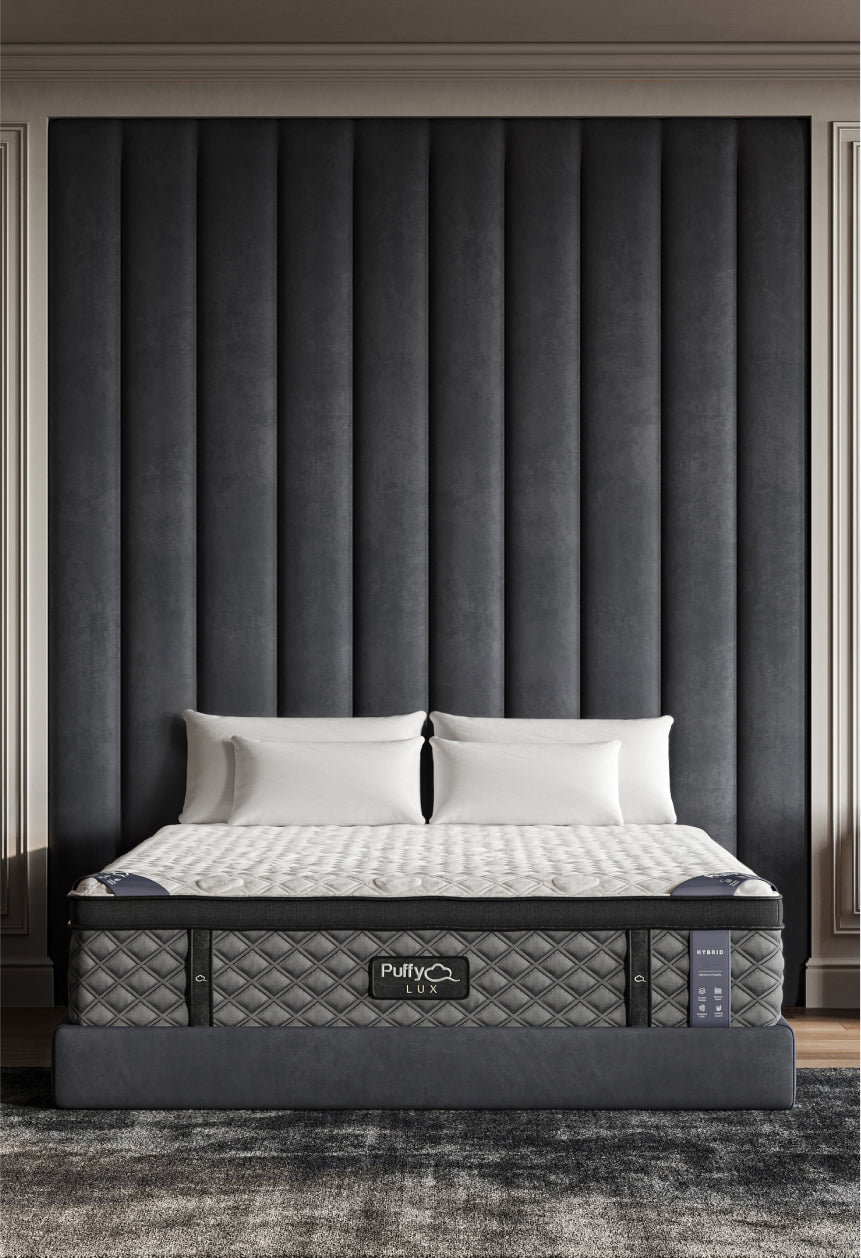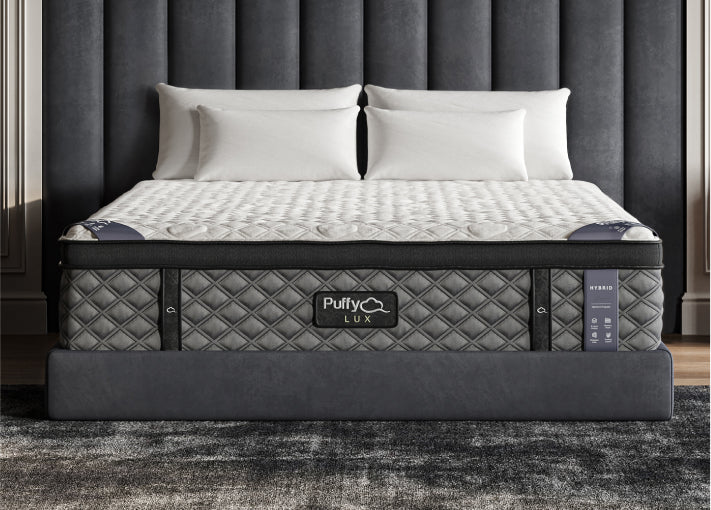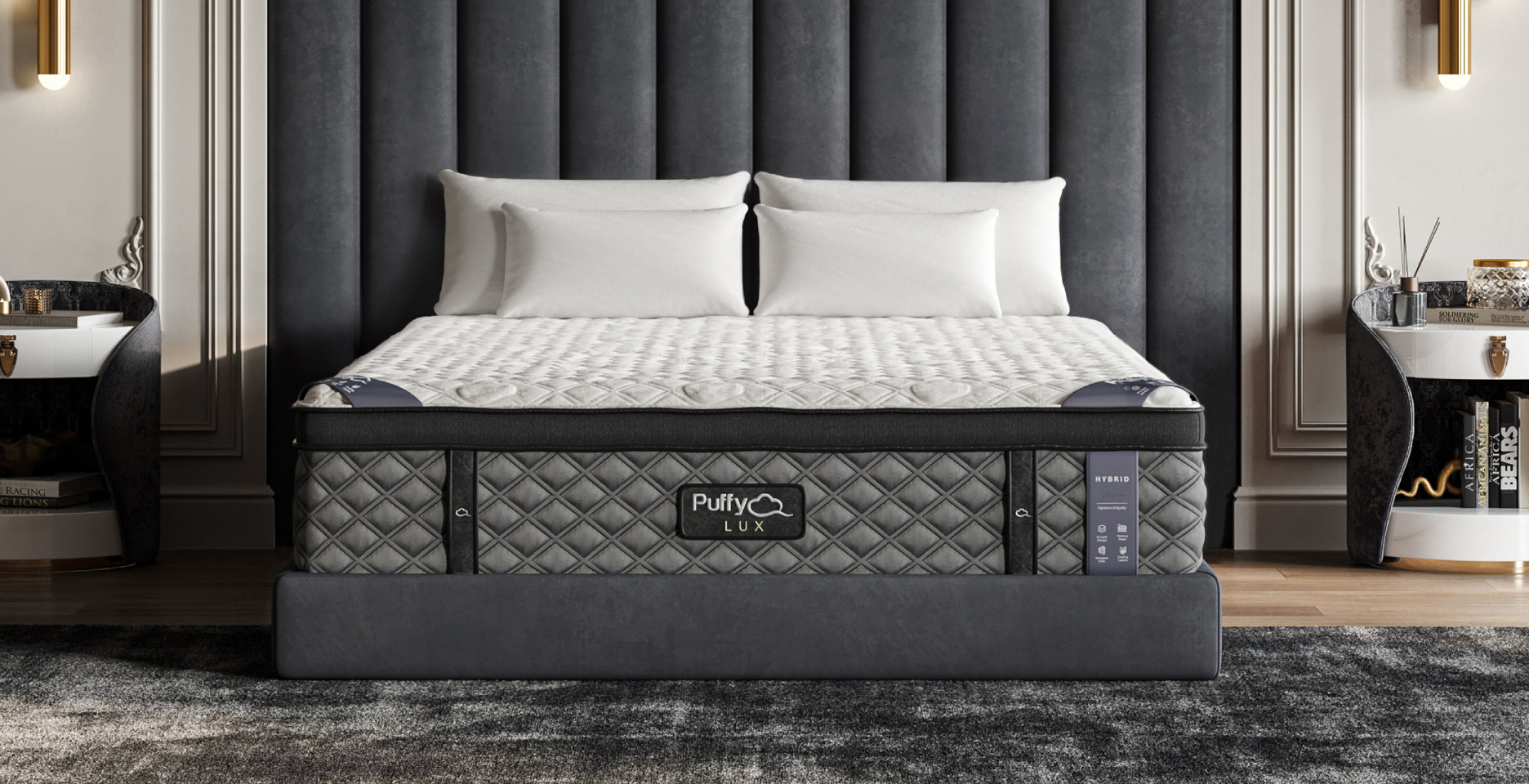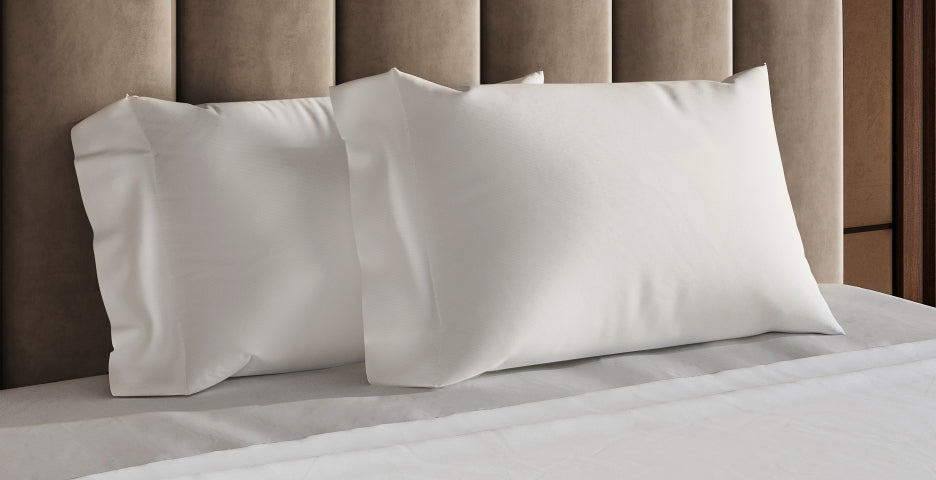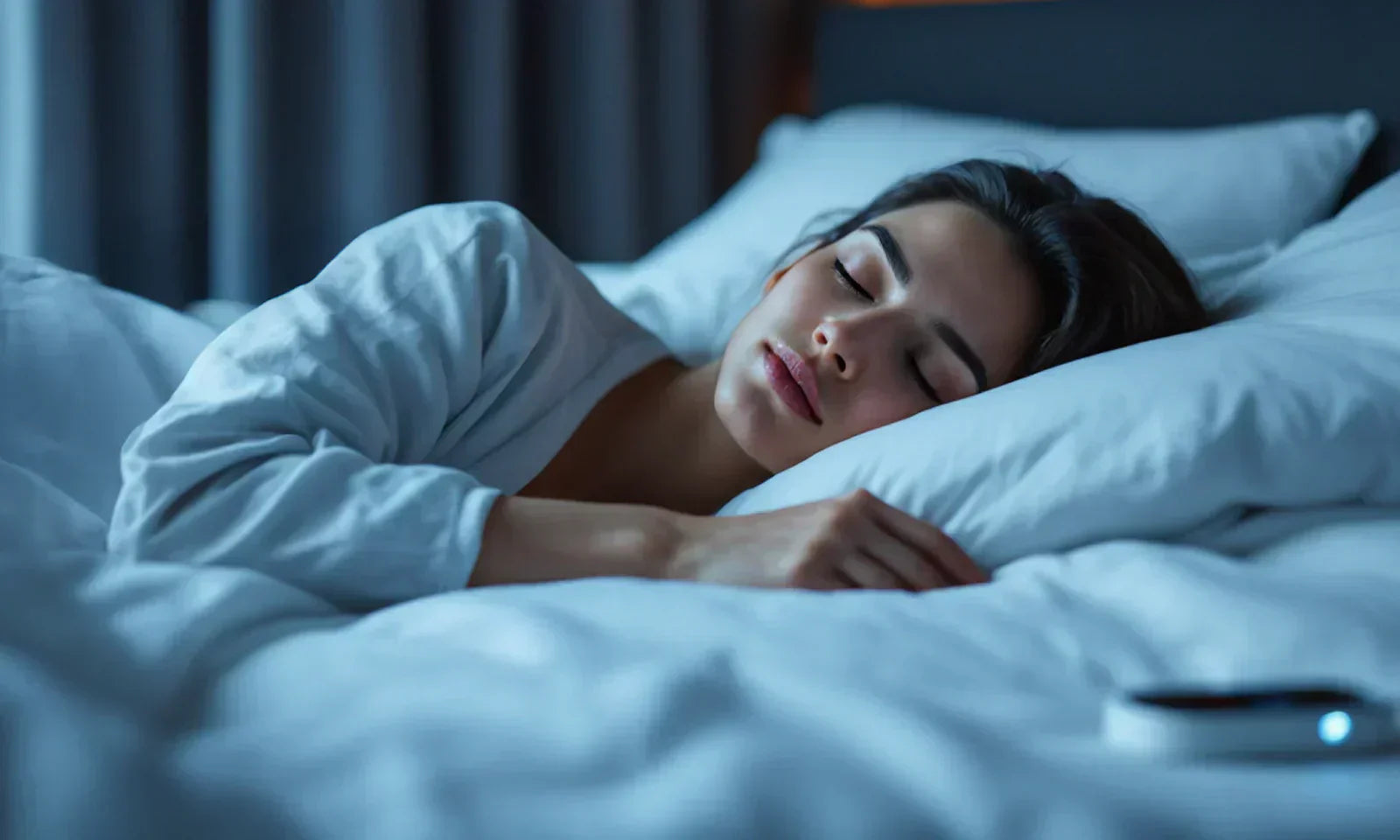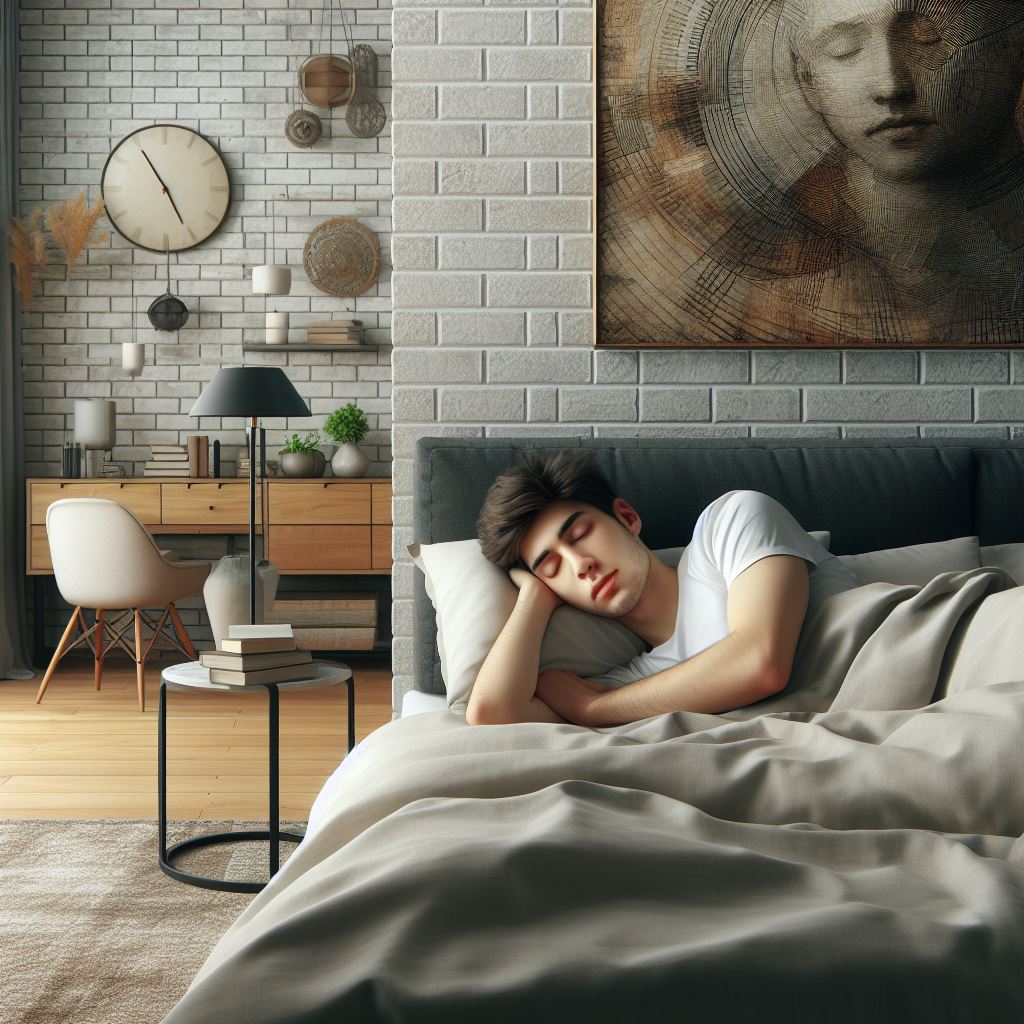Some people may find it easy to fall asleep as soon as their heads hit the pillow. For others, good quality sleep is hard to come by. Either they find it difficult to fall asleep or wake up frequently in the middle of the night. If this sounds like your nighttime experiences, then you may be experiencing restless sleep.
Though restless sleep isn’t considered a medical condition, it’s something that many people experience. In fact, frequent tossing and turning can interfere with the duration and quality of your sleep, making it challenging to feel well-rested. Here, we explore the causes of restless sleep and ways to overcome it.
What Is Restless Sleep?
There isn’t one specific definition for restless sleep. It can mean something different to everyone. For some people, a night of restlessness can be literal; they toss and turn the whole night, unable to get comfortable. For others, restless sleep can mean waking up in the middle of the night to use the bathroom and struggling to fall asleep again.
Restless sleep affects nearly everyone from time to time. It’s also completely normal to experience it to a certain degree. One study found that small movements are a normal part of sleep. Research has also confirmed that most people tend to experience 10 to 30 periods of restlessness during the night, particularly during the first two stages of sleep, which are the light sleep stages.
Though nighttime restlessness is relatively normal, it can become a problem if you experience it regularly. If you find that it typically takes you longer than 30 minutes to fall asleep or that you feel exhausted after waking up in the mornings, it could be a sign that you’re experiencing chronic restlessness.
What Causes Restless Sleep?

Adults need at least 7 to 8 hours of sleep every night to function properly. However, if your sleep is constantly interrupted and you find that you’re unable to go back to sleep, then you might find yourself experiencing excessive daytime sleepiness, fatigue, and concentration problems.
Many factors and underlying conditions can cause you to experience restless sleep. Here are a few of the causes.
Poor sleep hygiene
More often than not, poor sleep hygiene is the culprit behind restless sleep. Sleep hygiene is the practice of following a series of habits that can help you get better sleep. On the other hand, bad sleep hygiene habits can have the opposite effect, leading to increased nighttime restlessness and poor sleep quality.
Some examples of bad sleep hygiene include using electronic devices before sleeping, consuming too much caffeine during the day, eating a large meal right before bed, having too many alcoholic drinks close to bedtime, and not taking the time to properly wind down. Doing one or all of these can contribute to restless sleep, which is why it’s essential to focus on cultivating healthy sleep hygiene habits that can help you lock in a better night’s sleep.
Restless leg syndrome
Restless leg syndrome (RLS) affects an estimated 7 to 10 percent of adults in the U.S. Restless leg syndrome is classified as a sleep disorder because the symptoms are triggered during nighttime when you try to go to sleep.
Those who suffer from restless leg syndrome feel a persistent need to move their legs, typically because they experience some form of aching, burning, itching, or tingling, particularly when they’re resting. People who experience these symptoms find that moving their legs is the only way to ease their discomfort. The symptoms tend to subside by morning.
Though the cause of Restless leg syndrome is unknown, experts have said it is more common among people with an iron deficiency, pregnant women, and those who take certain medications, such as antihistamines or anti-depressants. RLS can get in the way of a good night’s sleep, so it is typically treated with medications and lifestyle changes, such as regular exercise, a healthy diet, and avoiding tobacco and alcohol. If you suspect your loved one is suffering from RLS, consult a doctor for professional advice.
Obstructive sleep apnea
Sleep apnea is a sleep disorder where your breathing is restricted, causing you to periodically stop breathing during the night. Sleep apnea occurs when the upper airway muscles relax during sleep and block airflow. Those who suffer from sleep apnea tend to experience sleep disruptions, snore loudly, and feel tired when they wake up.
An estimated 22 million Americans suffer from moderate to severe sleep apnea. If it’s undiagnosed or left untreated, sleep apnea can cause several other complications, including high blood pressure, heart disease, and depression. People with sleep apnea also tend to experience higher levels of daytime sleepiness, which can make it challenging for them to function at an optimal level.
Diet
It’s no secret that your eating habits have a direct influence on your sleep quality. If you’ve ever eaten too late or had a heavy meal close to bedtime, then you might’ve noticed that you struggle to fall and stay asleep. Your dietary choices can cause restless sleep, especially if the foods you eat cause heartburn or indigestion.
Though eating before bed isn’t necessarily bad for you, spacing out your mealtime and bedtime can help you achieve more restful sleep. As a general rule, you should try to eat your last meal at least 3 hours before you plan to go to bed. This is because it can take up to 4 hours to fully digest a meal, according to research.
The main reason why nutritionists recommend eating as early as possible is that your metabolism slows down at night, and your body takes more time to digest the food. This is why it’s imperative to avoid heavy and greasy foods that can be tougher to digest, such as meals that are heavy in carbohydrates and refined sugars. In addition to being mindful of what you eat, it’s also worth paying attention to what you drink.
Consuming too much caffeine or alcohol close to bedtime can also trigger restless sleep. Caffeine is a stimulant that can stay in your body for up to 10 hours, so consider switching to decaf when you start craving a latte in the afternoon. On the other hand, alcohol may have sedative properties that help you fall asleep fast, but it’s known to hinder REM sleep, which is why you might find it difficult to stay asleep after having one too many drinks.
Anxiety
Going to sleep and staying asleep can be challenging when your mind is constantly buzzing with a flurry of worrisome thoughts. Anxiety is one of the main causes of restless sleep and insomnia. When your mind is racing, it can be tough to settle down and go to sleep.
Sleep anxiety can make you more susceptible to sleep disorders, such as insomnia. The best way to overcome sleep anxiety and the accompanying restlessness is to consult a doctor, practice meditation, and adopt healthy sleep habits.
How To Overcome Restless Sleep Symptoms

To effectively treat restless sleep, you first have to get to the root of your problem. If you suspect you have any underlying medical conditions, it’s recommended to consult with a doctor or sleep specialist so you can find the most suitable treatment option.
But making some lifestyle changes can also be beneficial for helping you sleep better. In particular, adopting healthy sleep hygiene habits can go a long way. What to do if you can't fall asleep? Here are some ways to overcome restless sleep.
1. Avoid screens before bed
It’s only natural to come home after a long day and unwind in front of the TV. Or maybe you just can’t resist checking a few emails right before going to bed. Either way, the blue light that’s emitted from screens is a common reason why people experience restless sleep.
Most sleep experts recommend steering clear of screens at least 2 hours before bedtime because your circadian rhythm is most sensitive to light during the evening hours. Blue light, in particular, is known to suppress levels of melatonin, the sleep hormone. This can make it challenging for you to fall asleep at a decent hour, and when you do, it might be far from restful.
Instead of turning to screens, consider utilizing the time before bed to properly wind down by reading a book, enjoying a warm drink, and spending some quality time with your family.
2. Maintain a consistent sleep schedule
Keeping a consistent sleep schedule is no easy feat, especially on weekends when you might feel tempted to sleep in for just a few extra hours. However, being consistent is the best way to regulate your internal body clock, improve your sleep quality, and feel energized overall.
When setting your sleep schedule, try to work around your preferences, lifestyle, and schedule. If you’re someone who generally gravitates toward sleeping late, you may find it challenging to stick to a 9 p.m. bedtime. So, set realistic goals that you can stick to. The only thing you need to ensure is that you’re getting 7 to 8 hours of sleep every night.
3. Wind down
If you’ve never followed a night routine before, adopting one just might be a game-changer. One of the best ways to unwind before bed is to take some time for yourself and decompress. This can help you let go of the day’s stresses and prep you for a good night’s sleep.
Regardless of whether your routine only takes a few minutes or an hour, it’s essential to do something that soothes you, whether that means taking a warm bath or practicing mindfulness.
4. Reset your thermostat
Your room may be hotter or colder than you realize. Even a slight change in your thermostat can impact your sleep quality positively. Most sleep researchers agree that the optimal temperature for sleep is between 60 and 67 degrees Fahrenheit. However, that number may vary depending on what’s most comfortable for you.
Ideally, your room should be on the cooler side. Body temperatures fluctuate throughout the night, but you will only be able to fall asleep once your body temperature decreases. As such, maintaining a cooler room can not only help you fall asleep faster, but the consistency in temperature can also ensure that you don’t wake up in the middle of the night.
5. Prep for comfort
A good night’s sleep is hard to come by when you’re sleeping on an uncomfortable bed. To ensure you’re able to sleep uninterrupted, invest in the best mattress possible. If you feel overwhelmed by the sheer number of mattress choices available, consider opting for a hybrid. A hybrid mattress, which is essentially a cross between a traditional innerspring and memory foam mattress, can offer the perfect balance of support and comfort.
Along with finding the right mattress for your needs, investing in high-quality pillows and bedding can also help you sleep better. In case you tend to overheat during the night, opt for bedding with temperature-regulating capabilities so that your sleep isn’t interrupted.
6. Keep naps short
After a night of restless sleep, it’s only understandable that you would want to take a nap during the day to regain some energy. But napping too late in the day or for too long can prevent you from getting a good night’s sleep.
To reap the rejuvenating benefits of naps, try to keep them short. According to NASA, the ideal nap length is exactly 26 minutes, but a power nap can last anywhere from 20 to 30 minutes. The main benefit of napping for around 20 minutes rather than an hour is that you won’t wake up feeling groggy. Since it takes around 90 minutes to complete one sleep cycle, an hour-long nap won’t provide you with the restorative rest you need.
7. Don’t force it
Telling yourself to stay awake, also known as paradoxical intention, is actually a means of falling asleep faster. Though it might seem counterintuitive, the best thing you can do when you’re struggling to fall asleep is to get out of bed.
Staring at the ceiling or the clock for hours on end is only going to cause unnecessary stress. So, if you’ve been lying in bed for 30 minutes in a vain attempt to catch some shut-eye, then get out of bed, do something relaxing, and try again when you feel drowsier.
Conclusion
Restless sleep is a common occurrence every now and then. But if you find that it’s happening almost every night and you feel fatigued in the mornings, it might be a sign of an underlying problem. Seeing a doctor can help you find an effective solution, but adopting healthier sleep hygiene habits can also help you get back on track.
Check out Puffy mattress reviews from real customers and see how we compare with other brands.
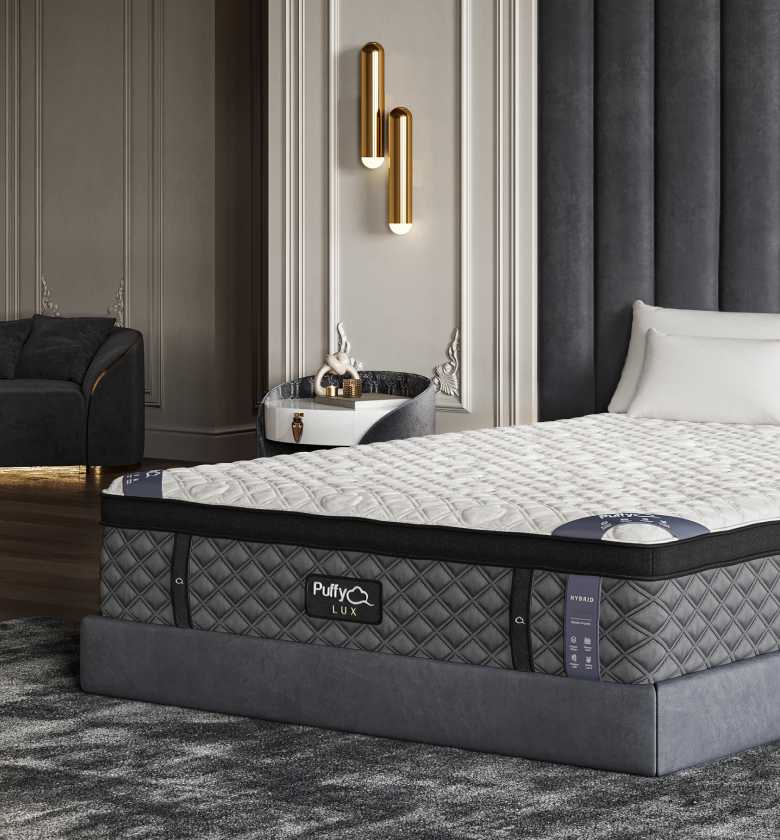
$1,350 in savings
Unlock your ultimate sleep solution with Puffy.
Explore our award-winning Puffy mattress collection with these extra luxury benefits:
- Award-winning comfort.
- Lifetime warranty.
- 101-night sleep trial.
- Free shipping and returns.
- 100% made in USA.
Disclaimer. We love sleep and we want you to get the best sleep possible. But we do not provide medical advice. This blog is intended for informational purposes only. It is not a substitute for professional medical info, diagnosis, or treatment. Never ignore professional medical advice in seeking treatment because of something you have read on our blog.
